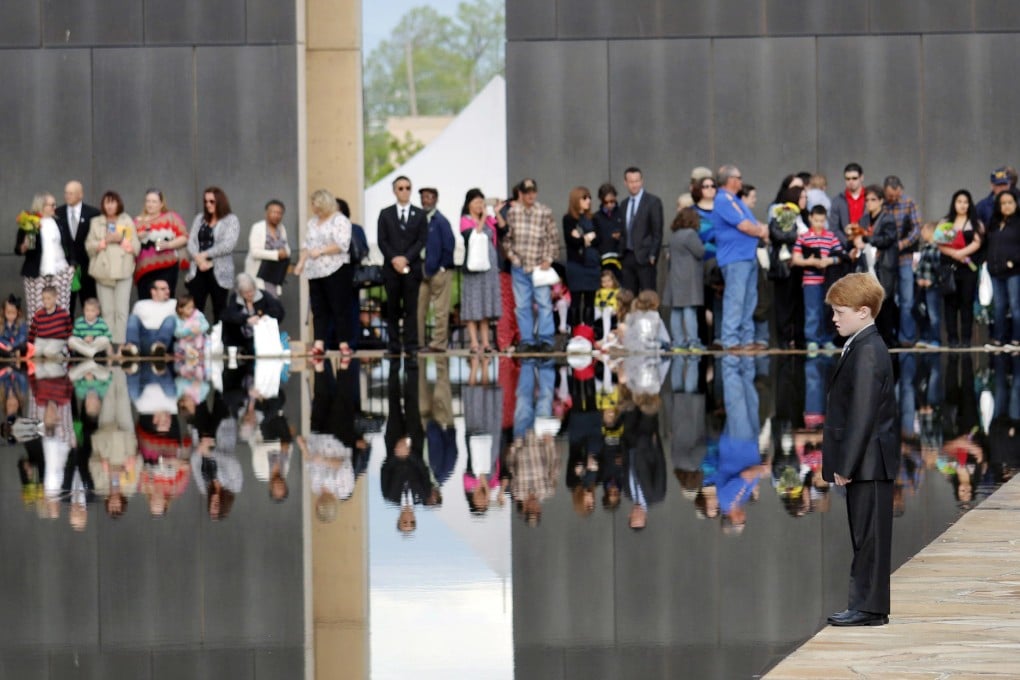Oklahoma City remembers bombing of Alfred P. Murrah Federal Building 20 years later
Oklahoma City gathers to remember victims of attack that killed 168

It was a quiet morning in Oklahoma City.
The sky was overcast as people shuffled along to Sunday morning services, while a crowd of more than a thousand stood silently at the Oklahoma City National Memorial.
They were there to remember the bombing of the Alfred P. Murrah Federal Building, 20 years ago, in a nearly two-hour ceremony. The attack by anti-government US Army veteran Timothy McVeigh killed 168 people.
"You are here not because you can't forget what occurred, but ... because you've chosen to remember," Oklahoma City mayor Mick Cornett said at the ceremony. "Turn back the clock 20 years ago and we were in our darkest hour. It was 60 minutes of terror, but our finest hour has now lasted 20 years."
Bill Clinton, who was president at the time of the bombing, echoed Cornett's sentiments. It was the sixth time Clinton had been in Oklahoma City to remember the bombing.
All the speakers - which included current and former Oklahoma City mayors; Oklahoma governors; James Comey, director of the FBI; and Jeh Johnson, the homeland security secretary - extolled the "Oklahoma Standard" a term coined by out-of-town rescue workers of the hospitality they received while in Oklahoma City.
"By just living by the Oklahoma Standard, you grew faster than ever before and grew far more prosperous," Clinton said. "A breathtaking increase in per capita income in these 20 years, but the material gains were incidental. Every family here who lost someone would give it all up in a heartbeat to have their loved ones back."